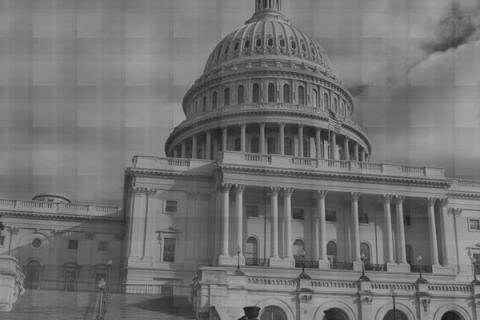In our politics today, there are few things more surreal than the spectacle of professional Republicans and Democrats bemoaning the state of partisanship and polarization in our country. In such moments of clarity, even self-described political junkies appear to comprehend the damage their actions cause to our communities, society and government. Yet time after time they prove themselves incapable of resisting the temptation to score their next partisan political fix. Perhaps they could be helped by visiting their local chapter of partisans anonymous.
For many people, kicking their political habit may turn out to be one of the most difficult things they will do over the course of their civic lives. Partisan political affiliation is, for many, the defining characteristic of who they are as citizens. Partisanship is, of course, a normal part of our everyday political lives. Party membership can offer the individual a productive outlet for civic energies and provide a sense of cohesion and belonging in a welcoming social group. However, partisan political engagement can become destructive of these valuable civic and social ends.
When individuals persist in such behavior despite ongoing and compounding negative consequences, their engagement has become a form of dependency, their activism a form of compulsion. The twelve step program of partisans anonymous may help some find their way on the road to political independence.
Step 1: Admit You Have a Problem
A state of denial is characteristic of the partisan's psychology. The individual can become powerless in the face of the party ideology, their political lives grow unmanageable. The first step is to admit you have a problem.
Step 2: Recognize a Higher Power
There is a power that is greater than party. It can restore us to political sanity. It is the people. The opening words of the US Constitution read, “We the people of the United States,” not “We the committed partisans of the party machines.” In the people, there is strength. We can rise above the allegiance to party.
Step 3: Take Stock of Past Errors
Political partisanship can tear families apart, ruin friendships, undermine liberty and degrade our constitutional integrity. Built upon lies, it blinds us to the truth and invites hypocrisy. Owning up to and taking responsibility for past wrongs goes a long way to making them right.
Step 4: Make Amends
Make a list of those you have wronged or harmed because of your partisan dependency. Reach out to these individuals and make amends for transgressions committed while under the influence of the party machines.
Step 5: Learn to Live by a New Code of Political Conduct
Expand your political horizons. Consider alternative points of view. Question partisan dogmas and orthodoxies which you have long taken for granted.
Step 6: Help Others
Know that you are not alone. Today there are more Americans who have liberated themselves from dependency on the major parties than than at any other time in living memory. Yet there are millions of Americans who remain in the thrall of partisan ideologues. Indeed, people you know, even loved ones, may have a serious political dependency. Reach out to them, and lend them an ear.
Step 7: Cease to Identify Yourself with a Party
For individuals with a serious case of partisan dependency, their political affiliation can become a defining characteristic of who they are. An important step toward political independence is beginning to think of oneself and others independent of any relation to the party machines.
Step 8: End Your Membership in the Party
Accomplishing this step is as easy as allowing one's membership in the party to lapse. This stage is fraught with peril, as the ideological pushers from the party machines will exert significant pressure to ensure that you remain in their thrall. Relapse is common, but it is important to remain strong in the face of temptation.
Step 9: Change your Registration
Changing one's voter registration today is as simple as printing out the relevant forms available on the website of your state's board of elections, filling it out and mailing it in.
Step 10: Investigate Alternatives
Individuals with a history of serious partisan dependency often tend to become alienated from their fellow citizens. Political tunnel vision is a primary symptom of this social disease. Partisan ideology narrows our habits of thought and constrains our ability for independent action. There are likely a great many healthy political alternatives to the major parties in your area. Seek them out.
Step 11: Become Involved
Once you have identified one or more healthy political alternatives, become involved with them in some way. This will strengthen your own support network and provide a productive outlet for your natural political energies.
Step 12: Vote for Alternatives
Voting is widely regarded as the most important form of civic engagement. Over the course of any electoral campaign, we are bombarded with advertisements, mailers and everyday discussions that may tempt us to fall back into old habits. Many are unable to resist smooth talking ideologues who invite them to toe the line “just one more time” or “for old time's sake.” The true Independent is strong enough to recognize such rhetoric for what it is: political poison.

